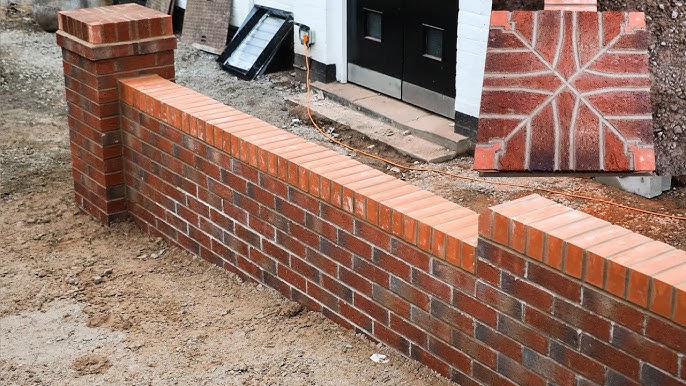Top Strategies for Investing in Probate Real Estate 2024
In the realm of real estate investment, probate properties offer a unique opportunity for savvy investors. Probate properties, often stemming from the passing of an owner who did not leave a will or whose estate is undergoing probate proceedings, can be acquired at discounted prices. However, navigating the complexities of small estates affidavit florida requires a nuanced approach and understanding of the market dynamics. In this guide, we delve into the hows, whys, whats, and who is of investing in probate real estate in 2024.
Why Invest in Probate Real Estate?
Before delving into the strategies, it's crucial to understand why probate real estate presents an attractive investment opportunity.
Discounted Prices: Probate properties are typically sold at discounted prices since the sellers are often motivated to sell quickly to settle the estate's affairs.
Limited Competition: Compared to traditional real estate listings, probate properties tend to have fewer interested buyers, reducing competition and potentially allowing investors to secure deals with better terms.
Potential for Value Appreciation: With the right investment and renovation strategies, probate properties can be refurbished and sold at a higher price, offering significant profit margins.
Diverse Inventory: Probate properties encompass a wide range of real estate types, including residential homes, commercial properties, and land, providing investors with diverse investment opportunities.
How to Buy Probate Properties
Now that we've established the rationale behind investing in probate real estate, let's explore the top strategies for acquiring these properties:
Research and Identify Probate Properties: Utilize online resources, local newspapers, and networking within the real estate community to identify probate properties in your target market. Additionally, consider hiring a real estate agent or attorney specializing in probate transactions to assist you in the process.
Attend Probate Court Auctions: Many probate properties are sold through court auctions. Attend these auctions to bid on properties directly. Conduct thorough due diligence beforehand to assess the property's condition, liens, and potential renovation costs.
Establish Relationships with Executors and Probate Attorneys: Executors and probate attorneys play pivotal roles in the probate process. Establishing relationships with them can provide insights into upcoming probate properties and potentially allow you to make pre-market offers before properties are listed publicly.
Understand Probate Laws and Regulations: Familiarize yourself with the probate laws and regulations in your target market. Each jurisdiction may have different rules governing the probate process, property transfers, and sale procedures. Complying with these laws is essential for a smooth transaction.
Negotiate with Sensitivity: Recognize that probate properties are often associated with emotional circumstances for the sellers. Approach negotiations with sensitivity and empathy, understanding that the sellers may be going through a challenging time. Presenting fair offers and demonstrating flexibility can facilitate successful transactions.
Evaluate Renovation Potential: Assess the renovation potential of probate properties to determine their profitability. Calculate renovation costs, potential appreciation in value, and market demand for renovated properties in the area. Ensure that your renovation plans align with the property's market value and the preferences of potential buyers or renters.
Secure Financing: Arrange financing options in advance to expedite the purchasing process. Traditional mortgage lenders, private lenders, or hard money lenders may offer financing solutions tailored to probate property acquisitions. Having financing in place demonstrates your readiness to close the deal swiftly.
Conduct Thorough Due Diligence: Before finalizing any purchase, conduct comprehensive due diligence on the property. This includes inspecting the property for structural issues, verifying title ownership, researching liens or encumbrances, and assessing zoning regulations and potential development restrictions.
Who is Investing in Probate Real Estate?
Probate real estate investors come from diverse backgrounds, but they share a common goal of capitalizing on the unique opportunities presented by probate properties. Here are some profiles of individuals who may be interested in investing in probate real estate:
Real Estate Investors: Seasoned real estate investors with experience in purchasing distressed properties, renovating them, and selling them for a profit are attracted to probate real estate for its potential returns.
House Flippers: House flippers specialize in purchasing properties below market value, renovating them, and selling them quickly for a profit. Probate properties offer an excellent opportunity for house flippers to find distressed properties ripe for renovation.
Buy-and-Hold Investors: Investors looking for long-term income generation may acquire probate properties to hold as rental properties. With proper management, these properties can generate steady rental income and appreciate in value over time.
Probate Attorneys: Probate attorneys, familiar with the intricacies of the probate process, may also invest in probate real estate. Their understanding of probate laws and procedures gives them a unique advantage in identifying lucrative investment opportunities.
Conclusion
Investing in probate real estate requires a combination of market knowledge, negotiation skills, and sensitivity to the unique circumstances surrounding these properties. By employing the strategies outlined in this guide buying probate property in florida understanding the motivations behind probate property sales, investors can capitalize on this niche market and unlock its profit potential. Whether you're a seasoned real estate investor or a newcomer to the industry, exploring probate real estate can offer lucrative opportunities for growth and success in 2024 and beyond.




Comments
Post a Comment